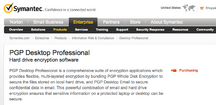Global Law Enforcement Operation Shutters Genesis Market, a Leading Online Market Dealing in Criminality
Genesis Market, an online-fraud-facilitation website and marketplace, has today been closed by an international joint effort coordinated by various police forces. Law enforcement agencies around the world took part in synchronized raids, including at locations in the UK and USA. 208 searches have been carried out, beginning at dawn on Tuesday 4 April, and a total of 119 suspected individuals have been arrested. This operation was spearheaded by the FBI in the US and the Dutch National Police. Consequently, users of the genesis.market website have been greeted with a boastful message and infographic on the home and login pages: "Operation Cookie Monster. This website has been seized."
Sophos, a leading software and hardware security vendor, has previously identified genesis.market as: "an invitation-only marketplace" from which buyers can acquire stolen credentials, cookies, and digital fingerprints that are gathered from compromised systems." According to the company's research, the illegal marketplace was also identified as an Initial Access Broker (IAB) - a business that compromises systems and services, steals data, and sells it. Genesis Market has special engagement capabilities in the field of illegally acquiring "credentials, cookies, and digital fingerprints". This stolen data was often sold on under individual lots, but the site also offered a longer term supply of data packages via a subscription service. This would offer the customer an up-to-date information trail, be it the tracking of an individual person or a collective.
Sophos, a leading software and hardware security vendor, has previously identified genesis.market as: "an invitation-only marketplace" from which buyers can acquire stolen credentials, cookies, and digital fingerprints that are gathered from compromised systems." According to the company's research, the illegal marketplace was also identified as an Initial Access Broker (IAB) - a business that compromises systems and services, steals data, and sells it. Genesis Market has special engagement capabilities in the field of illegally acquiring "credentials, cookies, and digital fingerprints". This stolen data was often sold on under individual lots, but the site also offered a longer term supply of data packages via a subscription service. This would offer the customer an up-to-date information trail, be it the tracking of an individual person or a collective.








